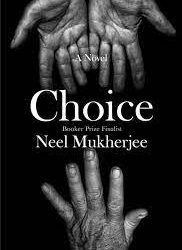WOW! catches up with Nico Slate, History Professor at Carnegie Mellon University
and author of The Art of Freedom, a book on the pioneering freedom fighter and textile
revivalist, Kamaladevi Chattopadhyay
WHEN WAS THE FIRST TIME YOU HEARD OF KAMALADEVI? WHEN DID YOU
DECIDE TO WRITE THE BOOK AND HOW LONG DID IT TAKE YOU TO WRITE?
Like most Americans, I did not learn much about the history of India in school. It was when I
began graduate school that I first learned of Kamaladevi. A few years later, to research for my
dissertation, I traveled to Delhi. I looked through the papers of a range of Indian anticolonial
activists. Kamaladevi struck me as one of the most fascinating figures I encountered. She was
committed to confronting not just British imperialism but also other facets of white supremacy
such as American racism. For twenty years, I have been studying her life and this book is the
culmination of that research and writing.
WHAT IS THE SENSE YOU GET OF HER AS YOU LEARNT MORE ABOUT HER?
Many of the people I interviewed stressed her deep empathy. It was not just kindness for her
friends and family but also empathy for those she never met. Consider the countless artists and
artisans Kamaladevi supported, many of whom treasure her memory even now. She was deeply
caring but did not suffer fools, and could come across as distant or even intimidating. With her
closest friends, by contrast, she shared a sharp wit and generous warmth.
YOU WRITE ABOUT HER MANY ACHIEVEMENTS – BUT MOST PEOPLE ONLY
KNOW HER WORK WITH THE TEXTILES, WHY IS THAT?
After independence and especially after the 1950s, Kamaladevi’s career was focused on arts and
crafts. I think she is remembered for that work simply because it dominated the last few decades
of her life. Part of my hope is that my book can help us recover the vital work Kamaladevi did
earlier in her life. Helping to lead the All- India Women’s Conference, the Salt Satyagraha in
Mumbai, and the Congress Socialist Party. Building networks of solidarity with African
Americans and others throughout the world, and helping and empowering refugees in the wake
of Partition.
WHAT WERE THE FACTS/INCIDENTS IN YOUR RESEARCH THAT SURPRISED YOU?
I was surprised by the depth and richness of her relationship with Gandhi. Unlike many of
Gandhi’s disciples, Kamaladevi did not hesitate to challenge the Mahatma when she thought he
was mistaken. Also, despite her tumultuous second marriage, Kamaladevi showed generosity
towards two of the women with whom her husband had long-term affairs. She saw them as
human beings and helped rather than blame them.
HOW RELEVANT IS THE STORY OF KAMALADEVI TO TODAY’S INDIA? WHAT
LESSONS CAN WE PICK FROM HER LIFE?
Kamaladevi fought multiple forms of injustice: sexism, imperialism, racism, inequities of class
and caste. She believed in the freedom of speech and of the press. She opined that the greatest
form of patriotism is to challenge one’s own country to live up to its ideals. Perhaps the most
important lesson I learnt is that we all have the power to fight for justice and to create beauty.










